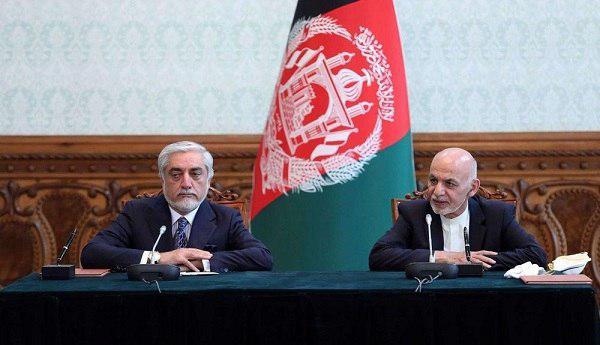Sapidar Palace said they had not been consulted in the appointments of the new governors by the Independent Directorate of Local Government (IDLG).
Publish dateWednesday 8 July 2020 - 14:38
Story Code : 214049
According to the power-sharing agreement between President Ashraf Ghani and Abdullah Abdullah, chairman of the High Council for National Reconciliation, both sides can appoint up to 50% of the provincial governors but the nomination must be based on mutual agreement.
The grey area of the power sharing agreement is that it does not specify which province goes to whom.
The IDLG said they had appointed governors to nearly 12 provinces so far and the process is ongoing with a number of new appointees lined up, based on the president’s decree.
New governors were appointed in Laghman, Baghlan, Khost, Samangan, Nuristan and Paktia within the last few days.
Rahmatullah Yarmal has been appointed governor of Laghman, Taj Mohammad Jahid has been appointed governor of Baghlan, Sediq Patman has been appointed governor of Khost, Mohammad Daud Kalakani has been appointed governor of Samangan, Abdul Ghafoor Malikzai has been appointed governor of Nuristan and Mohammad Halim Fidayi has been appointed to Paktia.
Earlier in the year, governors were also appointed to Herat, Bamyan, Daykundi, Ghor, Zabul and Logar provinces.
The IDLG said all governors will not be replaced. Explaining the appointment process, they also said that the department examines the “needs and priorities” of the people of the province and then nominates the “right person” after consulting.
“When they are elected, they do not see which political party or group they [the new governor] belongs to, but the priority of these governors is Afghanistan,” a spokesperson for the IDLG said.
After the process of appointing governors has been completed, the IDLG said they would move on to appointing deputy governors.
However, sources from Sapidar Palace told local media that they had not been consulted at all. The current focus of Abdullah had been naming the cabinet picks and the appointments were “unexpected” since he already had people in mind for some of the provinces.
The grey area of the power sharing agreement is that it does not specify which province goes to whom.
The IDLG said they had appointed governors to nearly 12 provinces so far and the process is ongoing with a number of new appointees lined up, based on the president’s decree.
New governors were appointed in Laghman, Baghlan, Khost, Samangan, Nuristan and Paktia within the last few days.
Rahmatullah Yarmal has been appointed governor of Laghman, Taj Mohammad Jahid has been appointed governor of Baghlan, Sediq Patman has been appointed governor of Khost, Mohammad Daud Kalakani has been appointed governor of Samangan, Abdul Ghafoor Malikzai has been appointed governor of Nuristan and Mohammad Halim Fidayi has been appointed to Paktia.
Earlier in the year, governors were also appointed to Herat, Bamyan, Daykundi, Ghor, Zabul and Logar provinces.
The IDLG said all governors will not be replaced. Explaining the appointment process, they also said that the department examines the “needs and priorities” of the people of the province and then nominates the “right person” after consulting.
“When they are elected, they do not see which political party or group they [the new governor] belongs to, but the priority of these governors is Afghanistan,” a spokesperson for the IDLG said.
After the process of appointing governors has been completed, the IDLG said they would move on to appointing deputy governors.
However, sources from Sapidar Palace told local media that they had not been consulted at all. The current focus of Abdullah had been naming the cabinet picks and the appointments were “unexpected” since he already had people in mind for some of the provinces.
Source : Afghan Voce Agency(AVA)
avapress.net/vdcjxxe8huqevyz.92fu.html
Tags
Top hits







